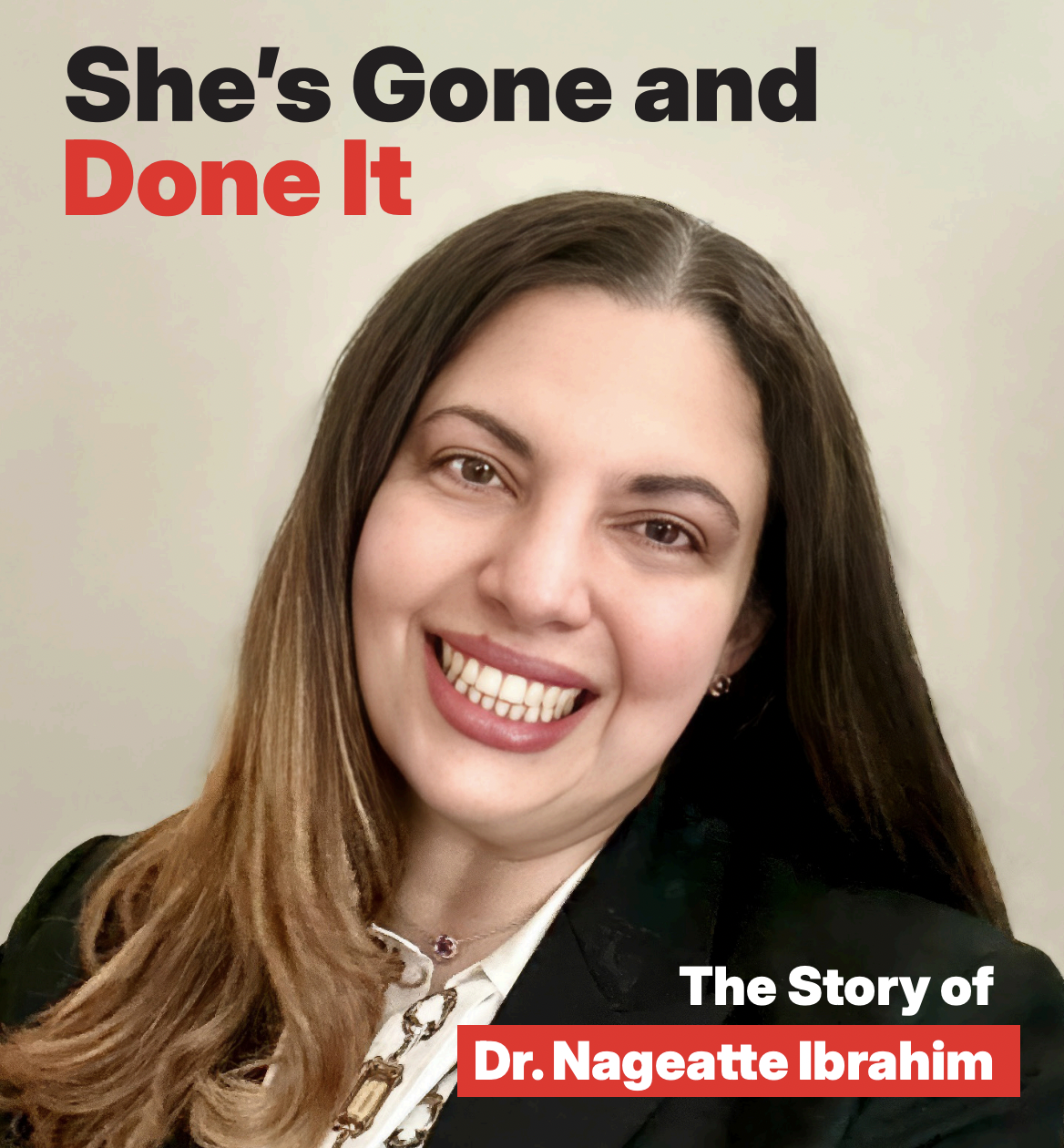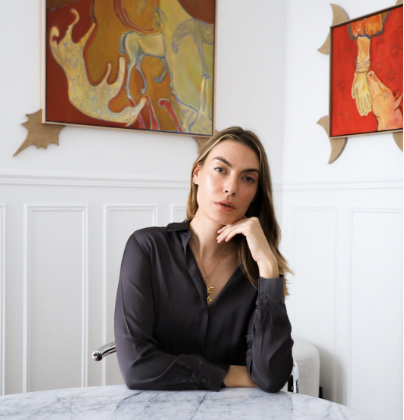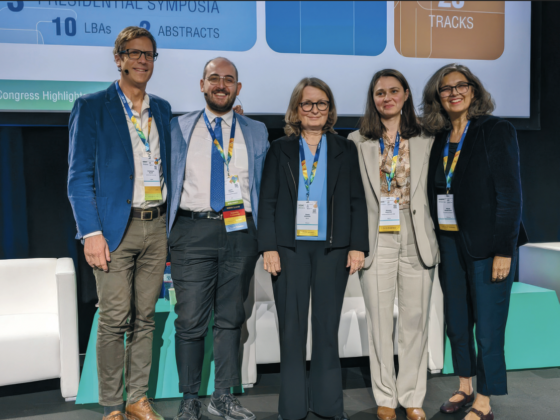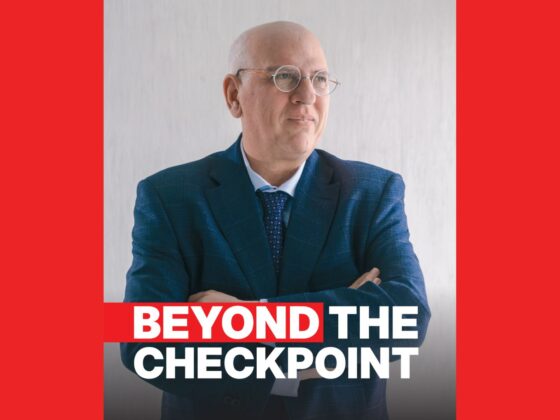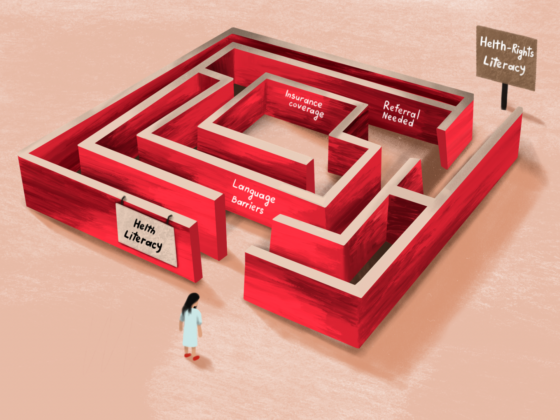Dr. Nageatte Ibrahim has spent her career at the intersection of oncology, science, and medicine, with achievements resulting in global impacts. Trained as a physician and scientist, she played a central role in the development of Keytruda, one of the most important cancer therapies of the last decade. Her work helped bring this immunotherapy to patients around the world, changing the treatment landscape for melanoma and other difficult-to-treat cancers.
Raised internationally, Dr. Ibrahim brings a multicultural perspective to everything she does. This article traces her path, from her early passion for medicine to her leadership in oncology research, and explores what drives her to keep going.
A Multicultural Spark
Born right outside of Paris and raised across continents—Europe, Africa, Asia and North America, Dr. Ibrahim carries a passport stamped with cultural depth. Her formative years were defined by transition, discovery, and a richness of diversity. “I grew up around the world,” she explains, detailing a life that included learning and speaking French and Arabic, experiencing both Eastern and Western cultures and modern vs traditional ways of living. The mosaic of cultures gifted her with a sense of belonging everywhere and nowhere. It taught her adaptability, empathy, and a love of connecting with people across cultures.
“As a child, my parents would describe me as very inquisitive,” she says, laughing. Curious and inventive, she skipped dolls for pots and pans and anything ‘real’ she could get her little hands on, an early sign of the determined problem-solver she would become.
From Curious Child to Cancer Warrior
By first grade, her purpose was clear. “I knew I was going to be a doctor,” she says to CancerWorld. That intuitive certainty guided her through college, where she majored in molecular biology and biochemistry at Rutgers and discovered her first professional home in cancer research.
Her time in Dr. Eric Rubin’s lab proved pivotal. “We were doing cancer research… analyzing tumor specimens for protein shifts after chemotherapy,” she recalls. It was in that lab, surrounded by microscopes and the scent of possibility, that oncology claimed her heart.
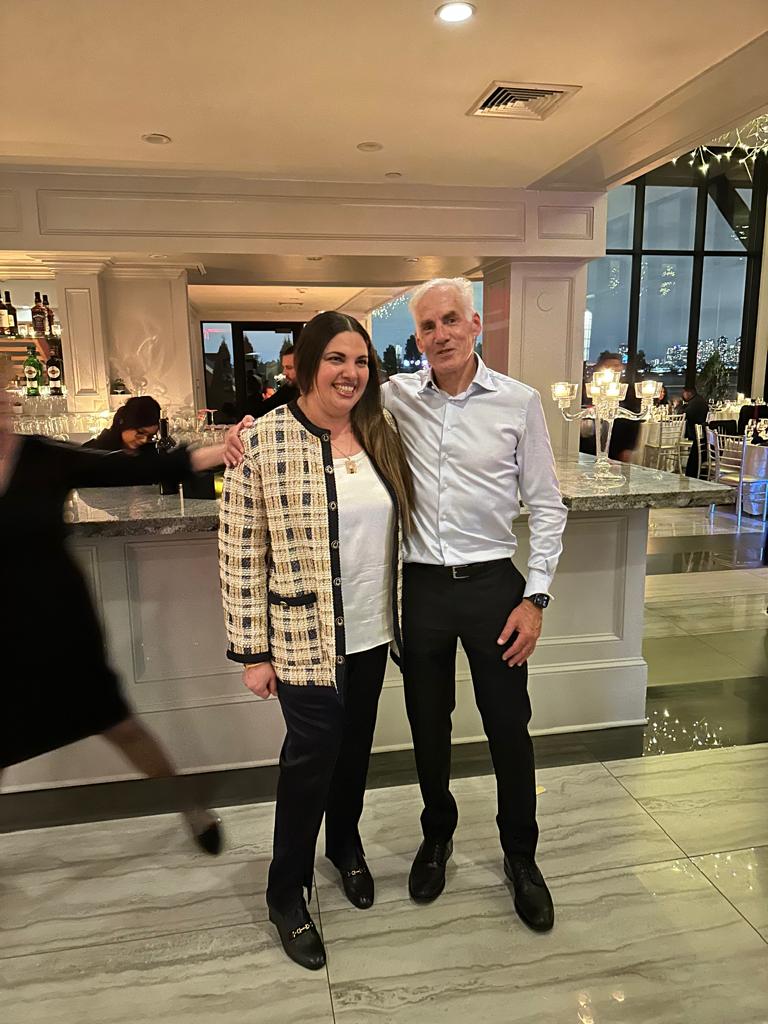
She was drawn to the complexity, the challenge, and the unrelenting demand for precision. “I get bored easily,” she admits. So, oncology, with its puzzles and evolving breakthroughs, offered the perfect intellectual playground.
The Power of Perspective
College also shaped her worldview beyond academics. She reflects deeply on the pressure of finding one’s purpose: “There’s always a lot of pressure, choose your major, and you have only 4 years to figure it out.” But for Dr. Ibrahim, mentorship and small-group science courses provided the clarity she needed. She credits those experiences with helping her imagine a future that balanced patient care with groundbreaking research.
A stint as a microbiologist at Merck added another layer to her understanding. “That planted a seed,” she explains, noting how the work on an anti-parasitic product for animals gave her an early glimpse of the role pharma could play in improving lives, not just from a lab bench, but on a global scale.
A Dream Come True: Tufts, Harvard, and Dana-Farber
Dr. Ibrahim’s academic path carried her through some of the most prestigious medical institutions in the country: Tufts, Harvard, and Dana-Farber. “It was a dream for me to get to Boston,” she recalls. At Tufts, she immersed herself in research, especially in melanoma, under the mentorship of Dr. Frank Haluska.
At Massachusetts General Hospital, she expanded her expertise to include breast cancer. “Melanoma was great in the lab, but very sad in the clinic. There was nothing at this time to give patients, and chemotherapy really didn’t work. So, you were just dealing with, unfortunately, side effects and symptoms of disease progression.” she says. “Breast cancer offered a world of possibilities, a lot of hope.” She speaks with reverence about the colleagues she worked with, many of whom are world-renowned. A T32 NIH training grant gave her extra time to deepen her scientific roots, time she says paid dividends later when interpreting complex clinical data.
A Leap of Faith into Pharma
Her move from academia to pharma was driven by timing, instinct, and an insatiable desire to do more. When she joined Dana-Farber in 2009, the melanoma landscape was grim. But within a year, “it exploded with novel medicines,” she says, citing the rise of CTLA-4, PD-1s, and BRAF/MEK inhibitors.
“Showing that immunotherapy could work, especially in melanoma, was huge. That’s a treatment that’s been tried for decades and decades, and no success. Failed study after failed study after failed study, no matter what people tried. And then came targeting the BRAF genetic mutation in patients who carry it in their tumors, the treatment literally made a life and death difference for patients.”
Dr. Ibrahim recalls one of the first patients she treated with a PD-1 inhibitor who “presented with a very large mass, about 6 inches in diameter on her left thigh”, she notes. As the patient continued on treatment, “the tumor kept on shrinking right before our eyes. Finally, when it was small enough, it was resected surgically, rendering this patient with advanced melanoma disease free,” she says with amazement. Dr. Ibrahim knew at that time this would be just the beginning of a new era in oncology.
Despite her thriving clinical practice, she longed for more involvement in clinical research and drug development. “What was lacking for me was the challenge of doing clinical research, and having the time and resources to do that,” she explains. Conversations with friends in pharma sparked a realization: the change she craved might lie outside academia.
Her first industry role was at GSK, helping secure full FDA approval for a melanoma drug combo, dabrafenib plus trametinib in metastatic BRAF-mutated melanoma. “That was very rewarding because I saw firsthand how these drugs work in patients and the time it buys them.” Later, she joined Merck, a name now synonymous with cancer immunotherapy breakthroughs. Still, she confesses, “Was it scary? Yes. Because I didn’t know what I was getting into.” But she had a backup plan: if pharma wasn’t the right fit, she’d return to academia. She didn’t have to.
A Defining Era at Merck
Dr. Ibrahim describes her years at Merck as nothing short of extraordinary. “I call it a once-in-a-lifetime opportunity,” she says. When she joined, Merck Oncology was still young and struggling, but she was excited to work once again with her mentor, Dr. Eric Rubin. Keytruda had just entered the scene, and it would change everything.
“I was so busy… up at two in the morning with my team on Teams, texting, problem-solving. It was that passion, knowing the drug worked and seeing it save lives.”
Having administered immunotherapies like Keytruda in the clinic at Dana-Farber, Dr. Ibrahim brought firsthand experience to pharma. She understood the transformative potential of immunotherapy in melanoma, which she saw as one of the most formidable cancers. “If we can crack melanoma, others will follow,” she predicted, and she was right.
Thrown into the deep end, she was handed a Phase III front-line melanoma study that had just completed enrollment. Within six months, the trial’s endpoints hit, and she was charging through the FDA filing. “It was beautiful data,” she says about how Keytruda helped these patients.
She rose quickly to become the melanoma program leader, overseeing a complex international adjuvant Phase III study co-run with EORTC for resected stage III melanoma. “It was a beast of a study,” she says, involving multiple global regions, CRO partners, and regulatory hurdles. But she thrived in the chaos. Her team’s passion mirrored her own: “If we can’t move the mountain, we’ll dig a tunnel through it.” The positive results of this pivotal trial led Dr. Ibrahim and colleagues to study Keytruda in resected high-risk stage II melanoma, launching the first global phase III study for this disease, and the results have changed how patients around the world are treated.
Building on her success and known for her inspirational and inclusive team leadership style, she climbed the ladder again to the VP ranks where she also lead the GI cancer teams noting accomplishments in the treatment of front-line biliary cancer with Keytruda and chemotherapy, launching another unique study in hepatocellular cancer evaluating the addition of Keytruda plus Lenvima to liver directed therapy (TACE) as well as leading the esophageal and gastric teams through global filings to deliver active Keytruda plus chemotherapy combinations. Among her most impactful experiences was leading a unique team called Innovative Strategies, which focused on tumor agnostic and biomarker driven approaches to treating cancers. The US FDA approval of Keytruda for TMB-H (tumor mutation burden-high) tumors, regardless of the tumor type (agnostic), was a major accomplishment for this team, building on the prior tumor agnostic approval for MSI-H (microsatellite instability-high) cancers, both considered major breakthroughs in oncology. Dr. Ibrahim’s responsibilities didn’t end here, though; her contributions ran through all of Merck oncology, and she and her teams were viewed as trailblazers and examples for others to emulate and push the boundaries of what is possible. With the leadership of seasoned drug developers, Dr. Roy Baynes, Dr. Roger Dansey and Dr. Roger Perlmutter, there was no stopping this high-speed train of innovation and execution.
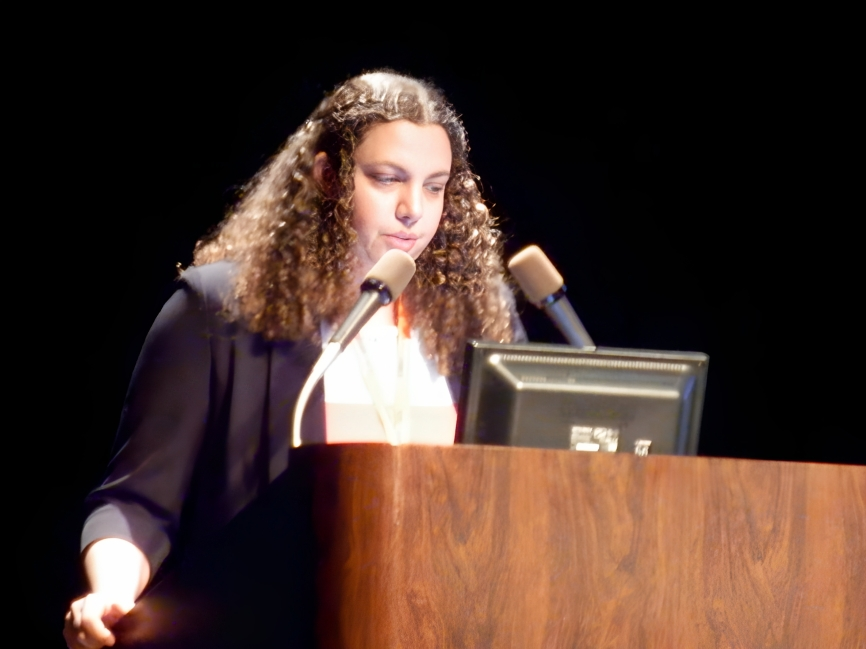
Her connection to Keytruda ran deep. She had treated patients with it, seen tumors melt away, and knew from experience that this was a life-saving drug. The work was grueling, often emotionally intense, but it was also the most meaningful chapter of her career. She poured herself into not just the trials but the infrastructure, building and leading teams, mentoring new hires, and shaping Merck Oncology’s identity. “We were building something from scratch,” she reflects. “And it worked.”
The Courage to Build Again: A New Chapter at Innovent and Beyond
Leaving Merck was the beginning of another bold leap. Dr. Ibrahim joined Innovent Biologics USA, a biotech subsidiary of Innovent China, stepping into the role of Chief Medical Officer of Oncology. The move from big pharma to biotech was dramatic, but invigorating.
“It was a big change,” she admits. “In large pharma, you have a lot of resources and you know who to call. In biotech, you’re building from the ground up with sometimes not more than a handful of people. You get to wear a lot of hats and step out of your comfort zones, but that can also be a lot of fun.”
At Innovent, her days began early, often with meetings involving clinical trial teams in China. With Innovent headquartered in Suzhou and her team in the U.S. still lean, she straddled time zones, strategy meetings, and science reviews. “We were running Phase I through III studies. Everything from safety checks to identifying early efficacy signals to navigating global regulatory pathways,” she says. Despite the chaos of time zone juggling and a small team, Dr. Ibrahim thrived. “Every day was different, and I loved it.”
“There are patients around the world who never see these innovations,” she says. “We need to fix that.”
Her goal is ambitious: bringing cutting-edge innovation to underserved regions globally. “I want to help bridge that gap,” she says. It’s not just about science anymore. It’s about access, equity, and global inclusion.
Through her career paths, her mission remains unchanged: to push the boundaries of what’s possible in cancer treatment, and to do it with compassion, curiosity, and conviction.
Dr. Ibrahim continues on her mission of clinical research excellence to achieve more breakthroughs in treating patients with cancer. As the next step in her mission, she started a consulting company, Arc Nouvel, working alongside colleagues with whom she has spearheaded major immunotherapy breakthroughs. This team will bring expertise in innovation, planning and execution across clinical development to foster the next wave of oncology medicines.
They Said ‘You Went to the Dark Side’
She’s candid about the early stigma she felt from peers: “People used to say, ‘You went to the dark side, the dark league of medicine, you chose money instead of patients. ’” But she counters that with pride. “I was working just as hard, if not harder, to bring effective drugs to patients and always keeping the patients’ needs at the forefront of what I did.”
The narrative has since shifted. “There’s more respect for people in pharma now,” she notes, especially given the success of PD-1 inhibitors and other novel agents. “Progress would not be possible without doctors in pharma. I think now there is more of a realization for physicians of what a career in pharma could look like and its impact on the greater good.”
Who is Dr. Ibrahim?
Dr. Nageatte Ibrahim is a force in oncology, brilliant, bold, and brimming with energy. But beyond the lab coat and leadership, who is she? In this rapid-fire Q&A, we peel back the layers to reveal the dreamer, the traveler, the gardener, and the woman on a mission to help cure cancer.
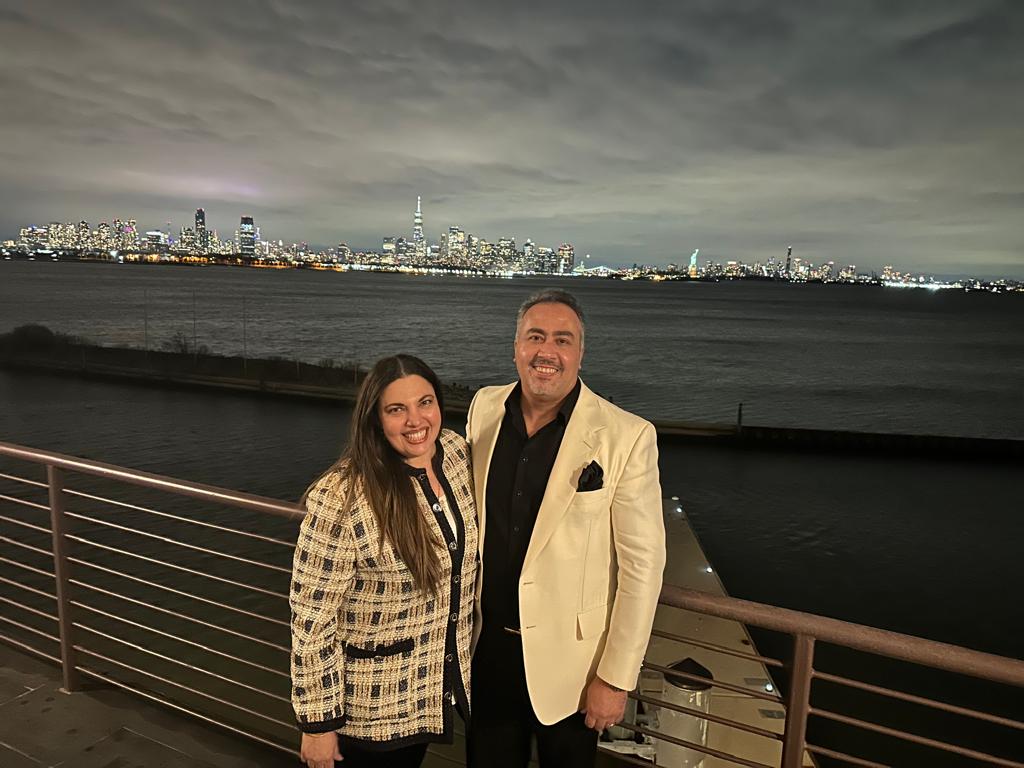
A legacy she hopes to leave in the oncology world: I want to be remembered as part of the group that cured cancer. I’ve seen tumors melt away. I just want more patients to experience that.
An advice she would give to her younger self: Slow down. Spend more time with family and friends. Time is precious, and you don’t get it back.
Passions outside medicine: Gardening, traveling the world, and spending time with family and friends.
One word colleagues would use to describe her: Empathetic.
Quote she lives by: You will regret more the things you didn’t do than the things you did.
Favorite movie: It’s a Wonderful Life. “It’s my Dad’s favorite movie and we watch it together every year; it holds a special place in my heart and I love how it show’s each of us has a purpose in life.”
If a biography were written about her, the title would be: She’s Gone and Done It.
Alternate career path: I’d be a singer and dancer and make people laugh. Or an FBI agent,” she laughs. “I like solving mysteries.”
Colleague to interview next: Dr. Gursel Aktan, breast cancer expert and Women’s Cancer program leader at Merck. “She’s always been a great inspiration and support for me.”
In the end, Dr. Nageatte Ibrahim is indeed a mystery solver, of cellular puzzles, of systemic gaps, and of how to lead with both brilliance and heart.

